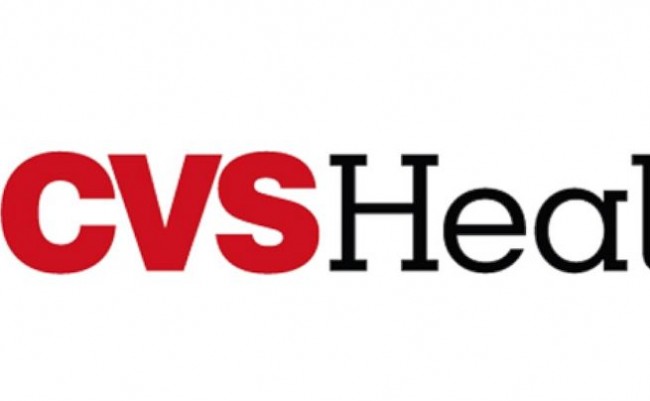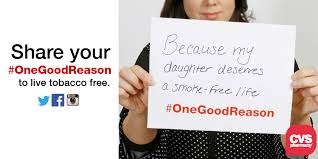
Debating the CVS Tobacco Decision
C VS was in the news last week for its decision to drop all tobacco products and rebrand itself CVS Health. The company actually announced the tobacco move earlier this year. Last week it celebrated that it was officially tobacco free. The company is making a big deal of the tobacco decision, rolling out a fully integrated marketing campaign with advertising, events, social media, PR and in-store activities.
VS was in the news last week for its decision to drop all tobacco products and rebrand itself CVS Health. The company actually announced the tobacco move earlier this year. Last week it celebrated that it was officially tobacco free. The company is making a big deal of the tobacco decision, rolling out a fully integrated marketing campaign with advertising, events, social media, PR and in-store activities.
My friend John Barker, head of the dynamic ad agency BARKER, wrote that CVS should be named marketer of the year for its move. He explained his thinking in a recent Facebook post:
There’s a saying that goes, “It’s not a principle until it costs you something.” Well, CVS paid plenty today for taking a powerful and courageous stand to align its actions with its brand mission. Their decision to stop selling tobacco products will reportedly cost them around $2 Billion a year.
So how can this be good for business?
The answer lies in the years to come, but from a marketing perspective, by shunning the single most dangerous consumer product in the world, they have put their money where their mouth is in a way few brands ever do. This is no “Warning Label” cosmetic makeover or greenwashing CSR strategy. This is one big business telling another big business to bugger off and die. The momentum and hard-earned authenticity of the decision allows CVS to rightfully claim the high ground as a Healthcare Solutions Provider, not a glorified convenience store nee pharmacy nee small grocery nee copy center. In other words, they have created enormous new “white space” around their brand, allowing the possibility if not the inevitability of extending into urgent care and other vertical plays that will organically drive its other sales. They become the doctor, the pharmacist, and the neighborhood center for all things health-related and/or tangentially associated. It’s kind of like the theory of having a gas station on every corner, except they’re all called CVS.
Regular readers of this blog will recall that I was skeptical of the decision when CVS first announced it. Despite John’s thoughtful endorsement of the idea, I’m still not convinced it is a marketing triumph. CVS is smart to focus on playing a big role in healthcare. I think the company is positioned for success; as people deal with high deductibles, they will look for cheap options and self-treatment. CVS can help with both. Building the CVS brand is important. The company needs to move from being a pharmacy to being a trusted healthcare provider. This is not a small transition.
I’m not convinced dropping tobacco products is the right thing to focus on for building the CVS brand. It is an expensive move; CVS is losing revenues of $2 billion a year. Tobacco sales probably generate a reasonable gross margin, perhaps 30%. If so, the move has a financial impact of about $600 million a year.
The bigger question: how precisely does dropping tobacco add financial value?
It should be a non-event for people who don’t smoke. It is a slight negative for people who used to buy tobacco products at CVS. It isn’t likely to dramatically boost employee morale or improve retention. People won’t line up to apply for jobs at CVS now that the company doesn’t sell tobacco products.
It certainly won’t have an impact on smoking rates in the country. People aren’t saying today, “Well honey, now that CVS isn’t selling cigarettes it is time for me to kick the old habit.”
The bigger question: is this the best way for CVS to spend $600 million a year?
I suspect not. For that amount of money, CVS could dramatically boost its advertising. It could invest in store design. It could add services that people really do value. It could test different ways of managing in-store clinics. It could fund an enormous public health program.
CVS deserves credit for thinking long-term, focusing on branding and strategically shifting to embrace the potential of healthcare. But the company should invest its resources on things that create meaningful value for customers.
* * *
Starting this week, I will be posting on this blog every Monday. Or at least that will be my goal. You can sign-up to get the weekly updates.
Feel free to send along potential topics. My email is t-calkins@kellogg.northwestern.edu
This week I am heading to Moscow to teach a corporate program. It is certainly an interesting time to be visiting Russia. Next week I will be back in Evanston to teach a corporate program at Kellogg. Fall semester classes begin the week after. Things are getting busy now that summer is behind us.
[…] our kids are sending the future of tobacco brands up in smoke Smoking rates among 12- to 24-year old Australians fell from 15% to 11% in the two […]
Thanks for posting the article. Looks like 15% would be a better gross margin figure for the calculation. If that is correct, it makes the CVS move a $300 million profit hit, still a meaningful number.
I love your blog, but I don’t think retail gross margins are close to 30% on cigarettes anymore (14.6% and continuing to drop in 2011 per this article: https://www.businessweek.com/articles/2013-01-17/in-convenience-stores-more-food-fewer-cigarettes).
Tim wrote: People won’t line up to apply for jobs at CVS now that the company doesn’t sell tobacco products
I am wondering what happened at Kraft when Philip Morris acquired them … Was there any impact on recruiting? That could give some factual information. It was a different time but still.
I personally like the move and I did chose CVS over Rite Aid the other day (actually reflecting on this topic) but – to your point – the 2 pharmacies are across the street from each other so I hardly got out of my way and I am not sure that it is a sustainable change on my customer behavior and I won’t go back to my standard “find the closest/easiest access store”.
And, like Mulder wanted to believe in aliens, I want to believe doing the right thing can be business friendly 😉
David
Corey—Thanks for the comment. Investing in the brand should definitely pay off long-term. I wonder how many people will actually transfer business; that will be the key metric to track. Clearly Walgreens isn’t too concerned since they have not followed the move, at least not yet.
Hello Tim, I think Walgreens shouldn’t follow the move, since it will only reinforce CVS position. However, if CVS changes the game with its decision, becoming an actual standard, Walgreens would follow them becoming the “2nd. Brand” in the “health positioning” Forever!
Really interesting, Tim. Aligning with their values should pay off big over time. I’m a fan of the move and as I was reading your blog I was envisioning myself transferring any Walgreens business to the local CVS. I want to support a business that is making a good decision for mankind. I suspect others might feel this way as well. I look forward to following the story.